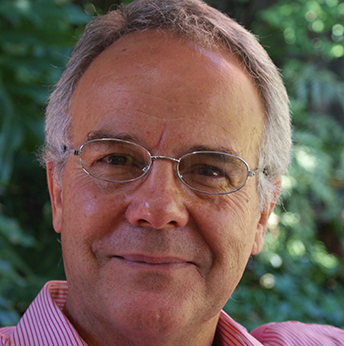The banishment of theology from intellectual debate in our universities has been an impoverishment. It has resulted in science locking itself into an empiricist prison, for it will only allow investigations into ‘how’ things come to be. The much more interesting question, ‘why’ is left languishing on the sidelines unremarked on.
Scientism (the belief that the only truth that exists is that which is scientifically, i.e. rationally) provable… together with ‘reductionism’ (which states that you have no more significance beyond being a bag of atoms) has resulted in a poverty of understanding.
I confess to finding the reductionist argument curiously circular. It claims we have no meaning because all we are is a ‘bag of atoms’. And because we are a bag of atoms, (similar to all other life forms), we have no significance. The obvious rejoinder, of course, is to point out that if you are unwilling to see beyond the structure of atoms, then that is all you will see. But by doing so, you will be contenting yourself with a desperately poor understanding of truth. You will only be seeing one waveband in the full spectrum of reality. The compassion of Mother Teresa and the laughter of Billy Connolly will be beyond you… and the historical life, death and resurrection of Jesus will receive nary a nod. As a result, your truth will be imprisoned into a very small space, a space that gives those advocating ‘scientism’ the illusion they can control and understand what’s within it.
I don’t like academic prisons. I like them even less when people who don’t know much about theology get on an atheistic soapbox and speak about God from the paucity of understanding that comes from their ignorance of all forms of truth.
Contrary to the claims of some, Christianity is not anti-rational. There are good reasons for me to see evidence of ‘mind’ in the cosmos. Nothing else in human experience has ever explained such fine-tuning as we see in the universe other than the operation of a mind.
I am further confirmed in my convictions by the discovery that sub-atomic particles only collapse from being a cloud of probability into being tiny physical particles when they are observed. Quantum physics therefore also points to the existence of mind.
Similarly, it is difficult to conceive what can put to work the beautiful, highly advanced mathematics of the cosmos so that it will build a universe, if not mind. (Information has to travel from mathematics to the quantum world if it is to build a universe, and the only way know to humankind this can happen is through the agency of ‘mind’.)
And information that informs what we hold to be true doesn’t stop there. When these scientific realities are overlaid with evidence of a morality (which we have a sneaking suspicion, lies beyond us) – and when this is also overlaid with the historic reality of the life, death and resurrection of Jesus Christ; the result is a synergy that allows for a very much greater understanding.
When you allow all these sources of knowledge to speak together, will have a symphony of understanding, a symphony that has been freed from scientism’s empiricist prison… and which whispers the possibility of God.





